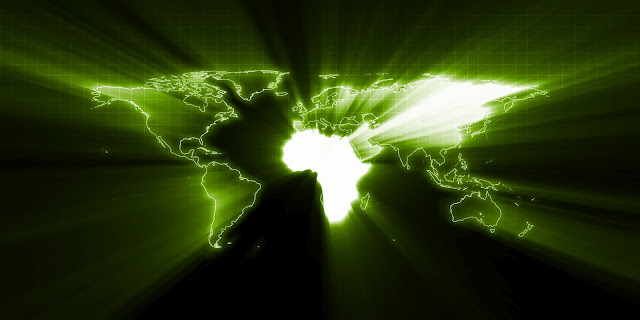Today's youth have awoken to the reality that if they do not fight against injustice, no one will do it for them. They believe that corrupt governments and power hungry politicians are not the cornerstones of progress. Rather, hope rests on democracy and human rights to create a better world. Justice will be served. The wicked will be cast down.
Yes, this is an age of awakening. We will no longer lend ourselves to the injustice of kings and dictators, crooked politicians and bribe-seeking police. Yet to this day, mosques everywhere are filled with worshipers who bow to the antithesis of what it is they seek. They are a people who refuse to be ruled by unjust men, yet submit to an unjust God.
Time and again, my neighbors and friends instruct me that God will grant mercy to the faithful. I am told that for those who confess "There is no God but Allah, and Mohammad is His prophet" and outweigh bad deeds with good all will be forgiven. God will simply erase all the mistakes and errors triumphantly ushering the believer into paradise. In Islam, pardon is fully within the realm of God's justice, and He will pardon every good Muslim. Supposedly, bad deeds are forgotten never to be remembered.
But what of the victims, do they remember? Do they not deserve justice?
Consider a fictional courtroom in my local village. As you and I sit behind the defendant, he rises and moves to plead his case. Accused of murder, he stands before the judge and begins his defense,
"Your honor, I have committed murder as you are well aware. But you must understand that this is but an isolated incident. I have murdered, but I am no murderer. Consider the weight of my good deeds, I pray five times a day, give alms, and uphold Ramadan. Please ask my neighbors and they will tell you that I have been on hajj twice. Allah Al'Aqbar! Does not this life of service before Allah more than cover the few mistakes I have made? I beg your mercy as you consider my past service in rendering judgment."With the drop of a gavel, the judge acquits this man of all charges. He is free to go. For a moment the courtroom is stunned; the citizens stare at the judge in shock. And shock gives rise to anger. "Order in the court!" cries the judge at the public outcry. Amidst the uproar, a young girl sits quietly trembling in the back row. Tears begin to flow down her cheeks; a flood of memories gushes through her mind. As her makeup begins to smear, her puffy eyes lock with those of the defendant as he retraces his steps down the aisle. With a grin, her father's murderer exits the courtroom.
Not one of us would tolerate such blatant injustice from a human judge. This revolution was started to cast down such injustice. And yet, Islam's claims make God out to be no better than our oppressors. To this point, my Muslim friends will object, "But God is not bound by our justice. His justice is different than earthly justice."
You are right when you say that God is not bound by temporal, finite creation. But I ask, did not the God who created you and I and the world in which we live also create the order that turns it and the justice that governs it? If God deems that the justice passed down to the prophets Moses, Jesus, and Mohammad is holy, is he not unholy when his justice proves contrary? Buried inside every human heart is a God-given conception of justice that flows from God's very nature. We can know and fight for justice because it is essential to the God who has sanctioned and sanctified it.
All injustice comes at a cost. A price to be paid. The murderer must relinquish his freedom, the thief must make reparations, and the sinner must be called to account for his active rebellion against a holy God. Within the confines of Islam's double-standard-justice, men will continue to uphold justice only when it is convenient and beneficial for them. Only a people that understands God's deep love for justice will actively pursue that justice in all facets of life.
Until the Arab world takes a firm stand on universal justice, the change they so desperately desire will elude them. An unjust God is as worthy of my worship as Mubarak is deserving of my tax money. Under an unjust God, the fight for justice will fail. Nothing will change but the names of those who filch and oppress the poor.
So what is the answer? How does God prove Himself just and still justify sinners? According to Paul's letter to the Romans in the Injil, chapter 3, the publicly shed blood of Jesus stands as payment for the sin and injustice committed by all who place their trust in this Messiah. Islam is half right, God will indeed pardon sin for the faithful. But He does not do this without payment.
God came to earth wrapped in man's skin, called Himself Jesus, and made the reparations on our behalf. Justice was fulfilled at the cross. The sinner's pardon is the blood of our spotless lamb.
